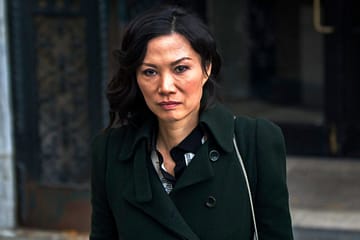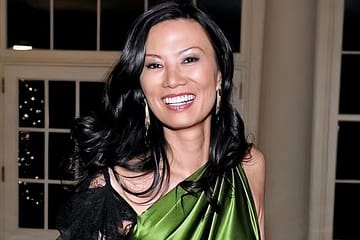The author of “Ten Crimes of Qin,” Jia Yi, made a significant political impact in history.
The story begins with the death of Empress Lü, leading to a purge of the Lü clan by a group of prominent figures led by Chen Ping and Zhou Bo. The Lü clan was wiped out, and the young emperor was a puppet created by Empress Lü, who had no blood relation to Emperor Gaozu Liu Bang. The question arose of who should become the emperor. This led to a comical scene in Chinese history, where an election was held to choose the weakest in-law from among the descendants of Emperor Gaozu Liu Bang. This was likely due to fear instilled by Empress Lü’s authoritarian rule, prompting everyone to focus on which prince had the weakest in-law. The attention turned to Liu Bang’s fourth son, Prince Dai Liu Heng, whose mother, Lady Bo, had a humble background and a low-key personality, making her a suitable candidate for the weakest in-law title. According to folklore, Lady Bo’s background was scandalous and could be made into an adult film. During the Chu-Han Contention, when Liu Bang suffered a major defeat, Lady Bo, then known as Bo Ji, occupied an abandoned house. One day, she encountered a bloodied man in armor with weapons entering her house — this man was Liu Bang. With pursuers approaching, she hid Liu Bang’s armor and weapons, then drew a large tub of bathwater and bathed with Liu Bang to deceive the pursuers. This story, though from folklore and not highly credible, illustrates Lady Bo’s humble origins. Nevertheless, Prince Dai Liu Heng, known for having the weakest in-law and a low-key demeanor, ascended to the throne.

However, for Liu Heng, the support and high reputation of figures like Chen Ping and Zhou Bo, who played significant roles in removing the Lü clan, posed a challenge. Prince Qi Liu Xiang, Gaozu’s eldest grandson who had contributed significantly to the downfall of the Lü faction, enjoyed widespread support and a high reputation, unlike Liu Heng, who had no notable achievements. Due to the need for equilibrium within the group of prominent figures, the emperor’s crown metaphorically fell on Liu Heng’s head. Therefore, Liu Heng had to promote someone who did not have significant achievements nor any suspicion of forming cliques and preferably had the ability to govern the country. This led to the emergence of the talented Jia Yi. Jia Yi was eloquent, passionate, and could be compared to a modern-day network marketer or insurance seller. Jia Yi even went as far as to claim that he could lead troops into battle, defeat the Xiongnu, and bring back the Xiongnu king like a dog. While Liu Heng was virtuous, he was also shrewd and dismissed Jia Yi’s remarks as nonsensical.
Jia Yi, with great courage, provided Emperor Liu Heng with a deep insight: to send all the princes back to their fiefdoms. Why was this considered a shrewd suggestion? It was because there were too many proud and accomplished individuals in the court, and Jia Yi feared that if the group of prominent figures and Princes Qi and Huainan joined forces to rebel, it could be disastrous. Therefore, the best solution was to send the princes back to their fiefdoms. In the Han Dynasty, unlike in the Zhou Dynasty, the princes had limited power and controlled only the taxes from their territories, while military and political affairs were centralized. Jia Yi’s suggestion was well-received, as the capital of the Han Dynasty was prosperous, offering the best education, healthcare, and commercial opportunities in the country. It was a haven for the wealthy, allowing ministers to live luxuriously. Sending the princes back to their fiefdoms would make them reluctant, as living there meant lower property prices, limited entertainment, difficulties in finding attractive partners, and unfavorable climates that could lead to mold growth during the rainy season.

The leader of the loyalist group, Zhou Bo, was the first to oppose (Chen Ping had already passed away). Throughout the various dynasties, most emperors did not do as they pleased. Since all the ministers were against it, they decided to temporarily halt the plan. However, Jia Yi had already planted the seeds of hope for Liu Heng, setting the stage for his own downfall. Jia Yi was destined to be just a pawn. His suggestions were not accepted, which must have been frustrating for him. He would give endless speeches and even advise Liu Heng to reduce the power of the feudal lords. If Jia Yi had known about the fate of Chao Cuo, he would never have made such a suggestion. At this point, Jia Yi had offended almost all the ministers in the court. Consequently, all the dissatisfaction was directed towards Jia Yi, exactly the effect Liu Heng desired. As the regime gradually stabilized, Liu Heng turned his focus to Zhou Bo. He rewarded Zhou Bo generously but often asked him questions about governing the country that Zhou Bo could not possibly know the answers to, making Zhou Bo uncomfortable. One of Zhou Bo’s followers warned him, “The more rewards the emperor gives you, the less he trusts you. It is dangerous. High achievements can shake the ruler, and it could result in a deadly outcome.”
Zhou Bo was not foolish and immediately understood this principle. Thus, Zhou Bo, apart from Cao Shen, was considered the most politically astute general and eventually met a good end. Therefore, Zhou Bo submitted his resignation, citing old age and illness that hindered his ability to work. Zhou Bo hoped the emperor would persuade him to stay, but the emperor showed no intention of doing so and immediately accepted his resignation. Liu Heng asked Zhou Bo to take a leading role and return to his fiefdom. He was also given a large amount of gold and silver. Seeing Zhou Bo leave, the other feudal lords could not resist and also returned to their fiefdoms, following the principle of “shoot the leader, capture the king.” To appease everyone, Liu Heng promoted Jia Yi, who was despised by many, but swiftly demoted him to Changsha, thus removing him from the political center. One day, Liu Heng remembered Jia Yi and called him to have a discussion. Upon seeing the emperor, Jia Yi started talking incessantly and immediately overwhelmed the emperor. Liu Heng thought to himself, “This guy is incorrigible. He’s of no use to me. The farther he goes, the better.” Jia Yi was once again demoted, this time to the state of Liang.
Not long after, Jia Yi passed away.




0 Comments